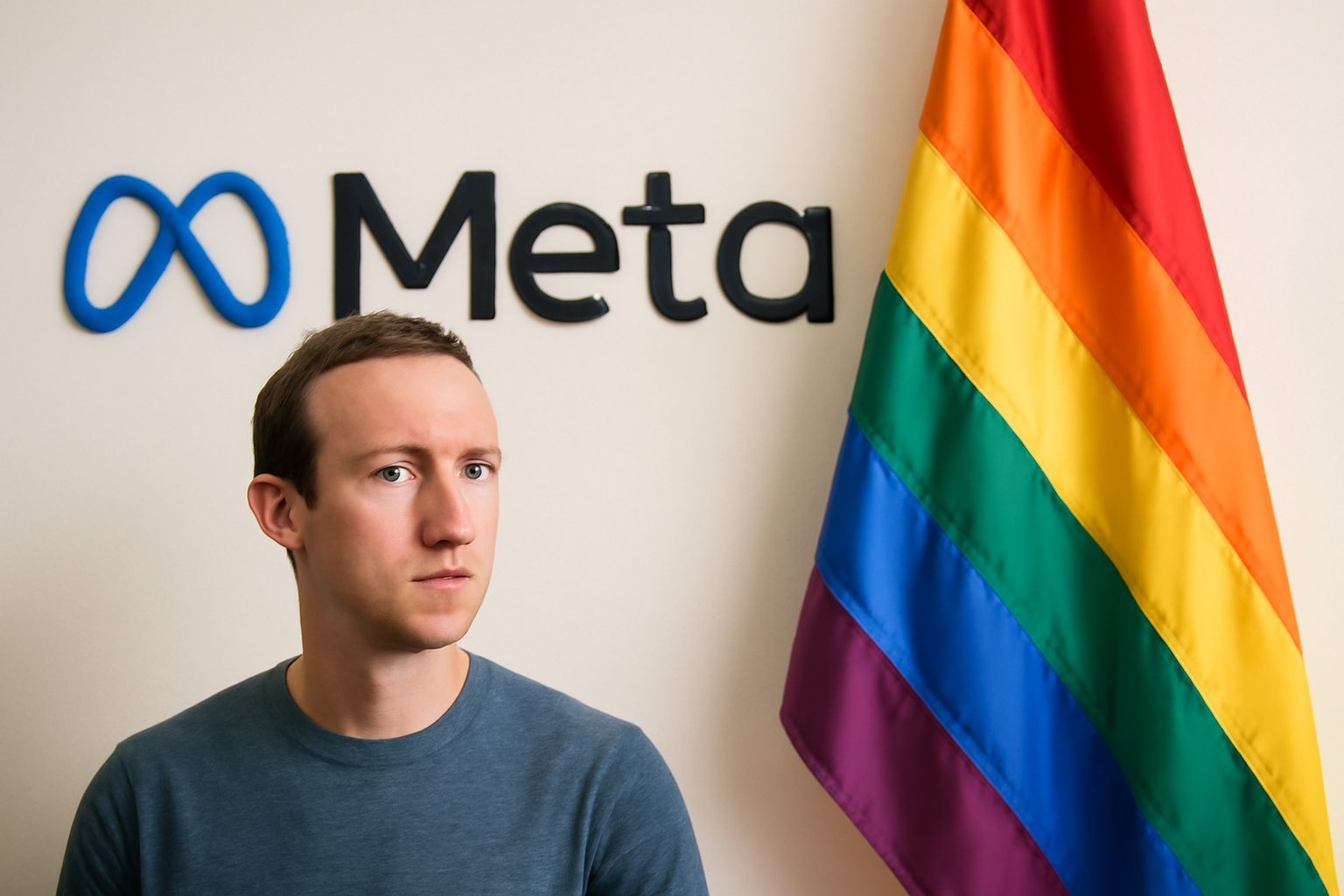
Meta's Policy Changes and Their Impact on the LGBTQ+ Community
In a controversial move, Meta, the parent company of social media giants Facebook, Instagram, and Threads, has announced significant changes to its content moderation policies. These changes, disclosed by CEO Mark Zuckerberg, have sparked concerns among LGBTQ+ advocates and fact-checking organizations. The new guidelines allow language that could be harmful to the LGBTQ+ community, raising questions about the platform's commitment to inclusivity.
On January 7th, Meta revealed that it will be scaling back its moderation efforts on divisive topics such as gender identity and immigration. The company plans to eliminate its independent fact-checking program, opting instead for a community notes system, akin to the model used by X, formerly known as Twitter. This shift marks a departure from previous efforts to curb misinformation and hate speech on Meta's platforms.
The revised hate speech guidelines permit users to refer to LGBTQ+ individuals in derogatory terms, describing them as "mentally ill" or "freaks," based solely on their sexual orientation or gender identity. Such terms have historically been used to stigmatize and marginalize LGBTQ+ people. The guidelines also remove restrictions on denying the existence of trans or gay individuals, and allow for the use of terms like "abnormal."
This change comes despite a long history of efforts to destigmatize LGBTQ+ identities. Homosexuality was declassified as a mental illness by the American Psychiatric Association in 1974, when it was removed from the DSM, or Diagnostic and Statistical Manual of Mental Disorders. Furthermore, the World Health Organization ceased classifying transgender identities as mental disorders in 2018, recognizing that being transgender is not a mental health condition.
Meta's decision to transition to a community-driven fact-checking model has been described as an effort to promote free expression by Zuckerberg. In a video announcement, he stated, "We're going to get back to our roots and focus on reducing mistakes, simplifying our policies and restoring free expression on our platforms." However, this move has been met with skepticism and criticism from various quarters.
Critics argue that community notes, which rely on users to provide context to posts, may not effectively address misinformation. A report by The Washington Post highlighted the shortcomings of this system on X, where it has struggled to combat misleading information. Concerns have also been raised about the timing of these changes, which coincide with Donald Trump's upcoming second term as president. Some believe that Meta's policy shift is an attempt to align with pro-free speech narratives favored by Trump and other conservative figures.
LGBTQ+ advocacy groups and fact-checking organizations have expressed alarm at Meta's new policies. Full Fact, a charity involved in Meta's former fact-checking program, described the changes as "disappointing and a backwards step" that could have global ramifications. Chris Morris, CEO of Full Fact, emphasized the importance of fact-checking in maintaining credible information and public safety.
Morris stated, "Fact checkers are first responders in the information environment, and our specialists work to promote credible evidence and tackle harmful information. We believe the public has a right to access our expertise." He dismissed allegations of bias within the fact-checking community, asserting that their work is impartial and rigorous.
Similarly, GLAAD president and CEO Sarah Kate Ellis criticized Meta's policy changes, arguing that they normalize anti-LGBTQ+ hatred. Ellis stated, "With these changes, Meta is continuing to normalize anti-LGBTQ hatred for profit—at the expense of its users and true freedom of expression. Fact-checking and hate speech policies protect free speech."
These developments have sparked a debate about the role of social media platforms in moderating content and protecting marginalized communities. As Meta moves forward with its new policies, the impact on LGBTQ+ users and the broader information ecosystem remains to be seen. Advocacy groups and fact-checkers continue to call for robust measures to combat misinformation and protect vulnerable communities online.
Related Posts
Triumphant Trans Woman Wins Legal Battle and Inspires Others to Stand Up for Their Rights
Breaking new ground: a landmark victory in transgender rights After battling in courtrooms and enduring endless challenges, Diana Portillo, a transgender woman, has secured a monumental victory in her decade-long fight against workplace discrimination. The result? Nearly $1 million awarded in a historic settlement. But this isn't just a win on paper—it represents a powerful precedent in combati [...]
Pride Month in Latin America: Protests and Demands for Equality
**Celebrating Pride and advocating LGBTQ+ rights in Latin America** Pride Month in Latin America was a lively mix where celebration met activism. Communities united, not just throwing a party but making a stand—demanding equality and pushing governments toward better protection and rights recognition. Throughout Latin America, pride events erupted in marches and cultural displays, each with a c [...]
Transgender Erasure Actions Implemented by National Park Service
```html Trump administration's impact on national park service and transgender recognition The Trump administration made notable moves in undermining transgender representation, which included directing agencies like National Park Service not include "T" and "Q" when they refered “LGBTQ” in any official communication. This move seems part a broader plan by this administration aimed at reducin [...]